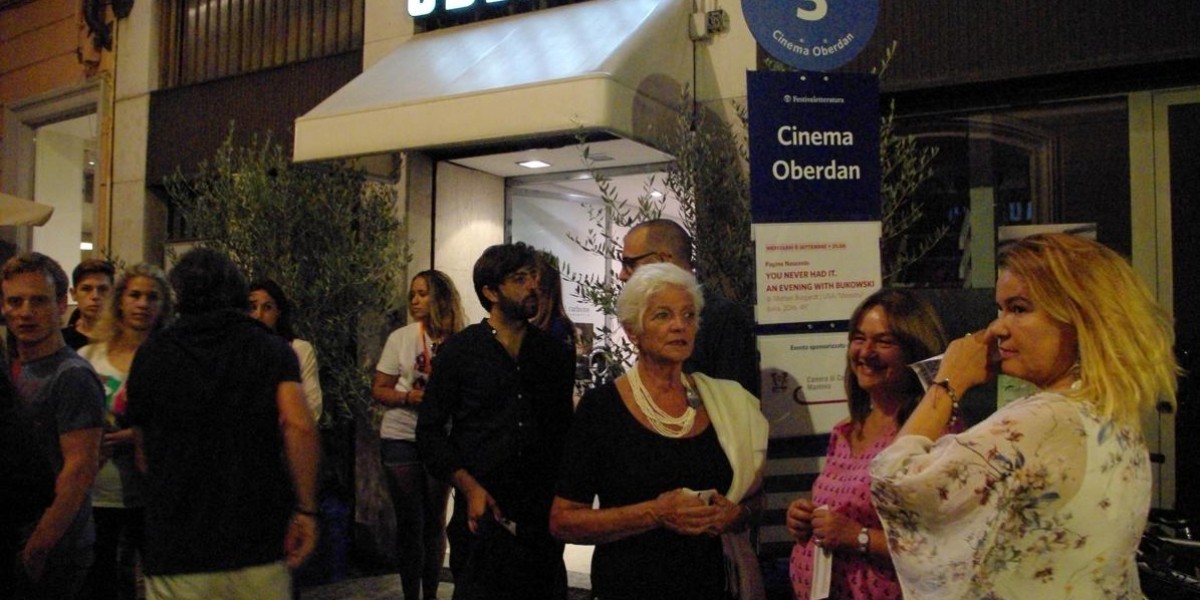
Writer, visionary, man
A long queue of spectators waits quietly on Via Oberdan for the unseen interview with the author of You Know and I Know and Thee Know. Drunk, misogynist, irreverent, perverse, controversial, genius. This is Charles Bukowski we know. But the most controversial author of the last few decades doesn't stop surprising us and revealing himself and his many different facets.
From the documentary by Matteo Borgardt, "Humanity you never had it. An evening with Bukowski", presented for the Pagine Nascoste series at Festivaletteratura, we see an unseen original and unusual side of the author. An introspective portrait of Bukowski slowly emerges between the glasses of Petite Sirah. This is a story that begins many years ago, as Silvia Bozio, interviewer and mother of the director, excitedly explains. It begins in Los Angeles when a young Bozio, accompanied by her friend Fernanda Pivano, meets Charles Bukowski. The first interview led to many others The polarity between the interviewee and interviewer shrinks and turns into a profound friendship with nights spent in each other's company. In the midst of one of these soirées filled with alcohol and words, Hank (Bukowski's nickname) lowers his tone and walks through the house in San Pedro, leading the audience through one of the many aspects of his personality.
There are many topics under investigation here, from beloved writers, to ex and women. What really stands out is the portrait of an old man who rails again humanity from his living room, the the constant and subtle irony of those who have abandoned all presences. In the documentary, Bukowski mocks the illusions of modern man, his futile needs, the constant need to share feelings and thoughts meaning that he ends up diluting himself "like watered down wine," the narcissism of poets and writers who speak about everything but "don't have the time to tell you that his wife has broken her arm."
The Bukowski on the screen is not a saint or a prophet, he might just be like the Shakesperian fool who unmasks the illusions and hypocrisies of society, making us all feel that bit more naked. The document shows us a man without filters in his vulnerable, controversial humanity, reminding us all that "humanity, you never had it from the beginning" and seems to show him smiling laconically alone, at a table sticking his fork into a piece of pasta, in front of the flow of the bustling crowd.



